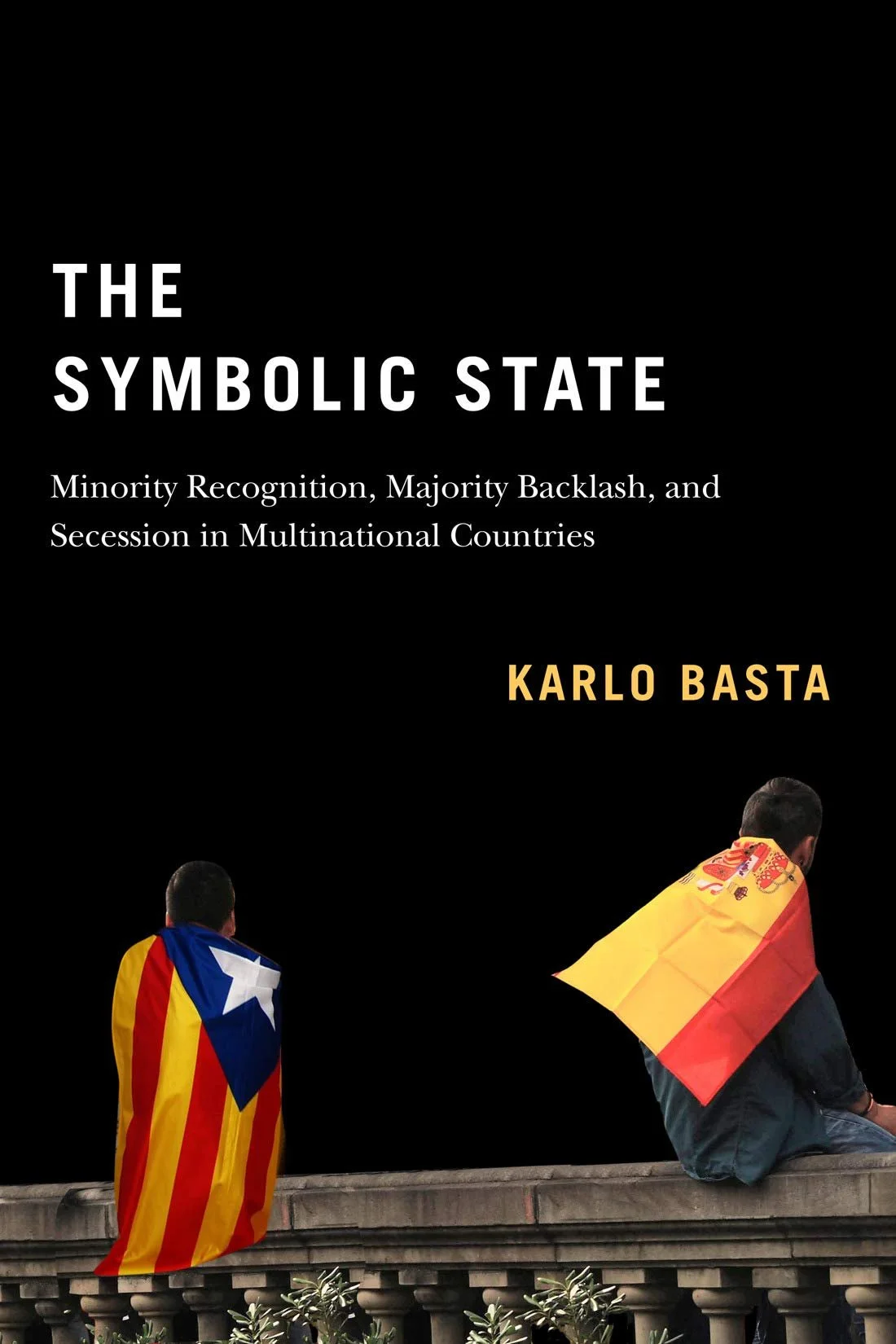The Symbolic State
The Symbolic State: Minority Recognition, Majority Backlash, and Secession in Multinational Countries
“Basta’s pioneering study of multinational states […] stimulates the reader to formulate questions, and propose hypotheses that could become part of a new research program in comparative politics.”
Veljko Vujačić (Oberlin), Perspectives on Politics
“When we face new or unexpected information in fieldwork, or information that contests our assumptions, we have a choice: to listen and learn, or to resist and continue pursuing our original aims without challenging our assumptions or assumptions that stem from our socialisation within particular theories. Basta pursued the latter path before realising later while accumulating more and more ‘uncomfortable’ evidence that he had to throw off the ‘analytical blinders’ of rational institutionalism. As he argues, conflict in multinational states is ‘less about ‘who gets what, when, and how’ and more about ‘whose story gets to be institutionalized.’”
Eleanor Knott (LSE), Nations and Nationalism
“Basta’s argument that symbolic recognition is likely to trigger secessionis crises is counter-intuitive and provocative. Indeed, it goes against much of the literature on the accommodation of nationalism, which tends to suggest that formally recognizing the existence of a minority nation is for states an effective way to manage nationalism. By stressing the symbolic value of institutions, the book also represents a major contribution to the study of nationalism and its management, and to comparative politics more broadly.”
André Lecours (Ottawa), Nationalities Papers
“As Basta argues, too often journalists, politicians, and most surprising of all, mainstream academics, wrongly conflate “nation” and “state” and they misunderstand, mischaracterize, and misrecognize multinational states. Their ontological and epistemological coordinates are circumscribed by the monistic demos thesis and by their predisposition to idolize the nation-state, and they exhibit a stultifying methodological nationalism (which may be an outgrowth of a form of banal nationalism), making them approach multinational states through the prism of the classical nation-state.”
Jaime Lluch (University of Puerto Rico), Publius: The Journal of Federalism
“Karlo Basta’s ambitious book promotes a critical re-thinking of the multi-national state. He provides a novel approach to understanding how institutional accommodation leads to secessionist crises, focusing on the role of symbolic politics between majorities and minorities in multi-national societies. This is a must read for scholars of secession, federalism, and nationalism.”
Kathleen Gallagher Cunningham (Maryland)
“In this outstanding and elegantly written book Karlo Basta argues convincingly that the multinational states are not an aberration but a product of contingent historical and political processes that affect all states. Basta develops a novel theoretical model that focuses on the political economy and the symbolic politics of multinational states. This innovative model is then successfully tested on the four very different case studies – Canada, Czechoslovakia, Spain, and Yugoslavia. This is an excellent and highly original book that will invigorate the comparative study of multinational states.”
Sinisa Malesevic (University College Dublin)
“Karlo Basta’s surefooted treatment of asymmetric federalism to accommodate the presence of more than one nation in a single state is as original as it is sound. Joining the logic of political economy to that of symbolic recognition, he produces a coherent picture of the interplay between central governments and minority nations.”
Donald Horowitz (Duke)
"The Symbolic State is a theoretically and empirically ambitious book that challenges scholars of decentralization and secessionism to consider the distinctive dynamics that occur within multinational states. In particular it challenges broad-brush theories of federalism and 'indirect rule' that assume a universal relationship between territorial concessions and self-determination demands. The phenomenon is far more complex and contingent than much of the existing research acknowledges."
Jason Sorens (Saint Anselm College)
